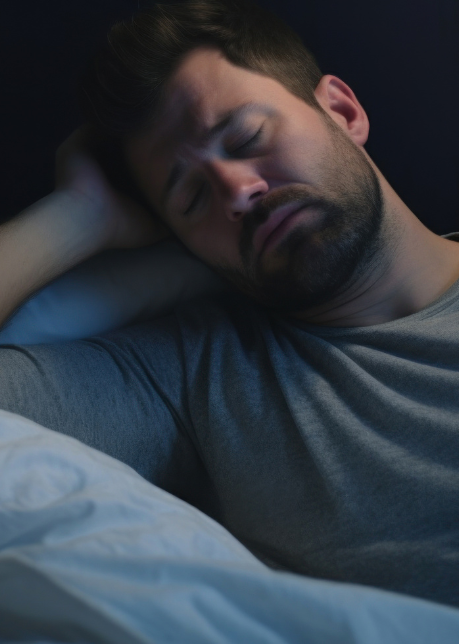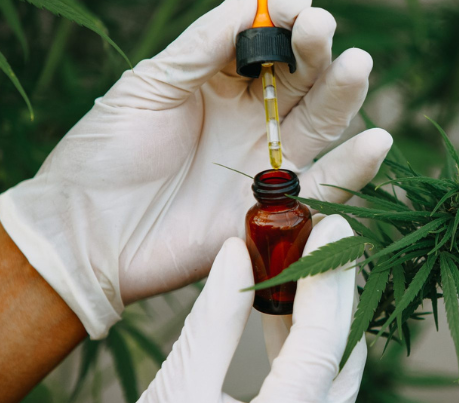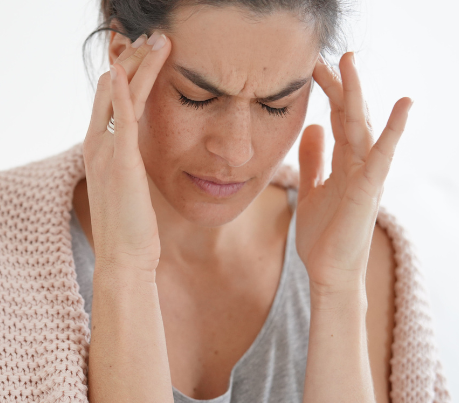
Medicinal cannabis products improve outcomes related to chronic pain and generalized anxiety disorder, as well as patient-reported outcomes, particularly sleep and quality of life.
Among the conditions that significantly reduce the quality of life are chronic pain and anxiety.
When considered individually, both factors negatively impact quality of life, but their combination further worsens the situation: in patients with certain types of chronic pain, such as neck or back pain, the prevalence of anxiety is approximately twice as high compared to healthy individuals.
Moreover, according to the biopsychosocial model of pain, anxiety is both a cause and a consequence of chronic pain, and the coexistence of these conditions reduces the effectiveness of anxiety treatments and worsens pain-related outcomes.
Medicinal cannabis products are considered potentially effective treatment options for both generalized anxiety disorder and chronic pain, and several recent studies — conducted using data from the UK Medical Cannabis Registry — are contributing valuable evidence to this field.
In these studies, researchers evaluated the effectiveness of medicinal cannabis products not only on pain- and anxiety-specific outcomes, but also on other parameters related to quality of life. Among these is sleep, which can be significantly affected by conditions like pain and anxiety and, in turn, has an important impact on the patient’s overall well-being.
Evidence in Patients with Chronic Pain and Anxiety
A prospective cohort study¹ conducted on 761 patients with chronic pain, treated exclusively with medicinal cannabis products in oil form (348 patients, 45.7%), dried flower (36 patients, 4.7%), or both (377 patients, 49.5%), assessed efficacy in terms of changes in patient-reported outcomes, measured using validated tools.
Data analysis indicated statistically significant improvements in measures related to pain, sleep, and overall health-related quality of life for patients treated with oils and with the combination of oils and dried flower at all timepoints (1, 3, and 6 months after the start of treatment) compared to baseline; in the group treated with both forms, anxiety-specific outcomes also improved.
These positive results were confirmed in the case of generalized anxiety disorder in another study² that analyzed data from 302 patients treated with cannabis-based products in oil or dried flower form.
Significant improvements were observed in anxiety-specific outcomes (measured using GAD-7), sleep quality, and health-related quality of life across the entire follow-up period (1, 3, and 6 months from treatment initiation).
Finally, a prospective study³ compared clinical outcomes in a population of chronic pain patients with or without concomitant anxiety, all treated with medicinal cannabis products.
A total of 1,254 patients were included, 711 of whom had a diagnosis of generalized anxiety disorder.
Across the entire sample, statistically significant improvements compared to baseline were observed at 1, 3, and 6 months from treatment initiation for all outcomes, including pain-related, quality of life, and sleep-related measures.
In the group of patients with generalized anxiety disorder, improvements in patient-reported outcomes were more pronounced than in the group without anxiety, while no significant differences were observed for pain-specific outcomes.
Focus on Sleep Quality
In all these studies, specific evaluation of changes in sleep quality over the previous week was conducted using a validated tool, the Single-item Sleep Quality (SQS) scale, a numeric scale ranging from 0 (poor) to 10 (excellent).
In chronic pain patients¹ treated with oil formulations or a combination of oil and dried flower, improvements compared to baseline were statistically significant at 1, 3, and 6 months from treatment initiation.
Patients treated with dried flower alone also showed a positive trend, with significant improvements at 1 and 3 months.
In the population of patients with generalized anxiety disorder², improvements in sleep scores were observed at all timepoints, with a difference from baseline of 1.8 points at 1 month, 1.9 points at 3 months, and 1.5 points at 6 months from treatment initiation.
Similarly, in the comparative study³ between patients with chronic pain with or without concomitant anxiety, SQS scores significantly improved at all timepoints compared to baseline, with variations between 1 and 2 points. Improvements were more marked in patients with both chronic pain and anxiety.
References
¹ Tait J, Erridge S, Holvey C, et al. Clinical outcome data of chronic pain patients treated with cannabis-based oils and dried flower from the UK Medical Cannabis Registry. Expert Rev Neurother. 2023 Apr;23(4):413-23.
² Rifkin-Zybutz R, Erridge S, Holvey C, et al. Clinical outcome data of anxiety patients treated with cannabis-based medicinal products in the United Kingdom: a cohort study from the UK Medical Cannabis Registry. Psychopharmacology (Berl). 2023 Aug;240(8):1735-45.
³ Bapir L, Erridge S, Nicholas M, et al. Comparing the effects of medical cannabis for chronic pain patients with and without co-morbid anxiety: A cohort study. Expert Rev Neurother. 2023 Mar;23(3):281-95.


